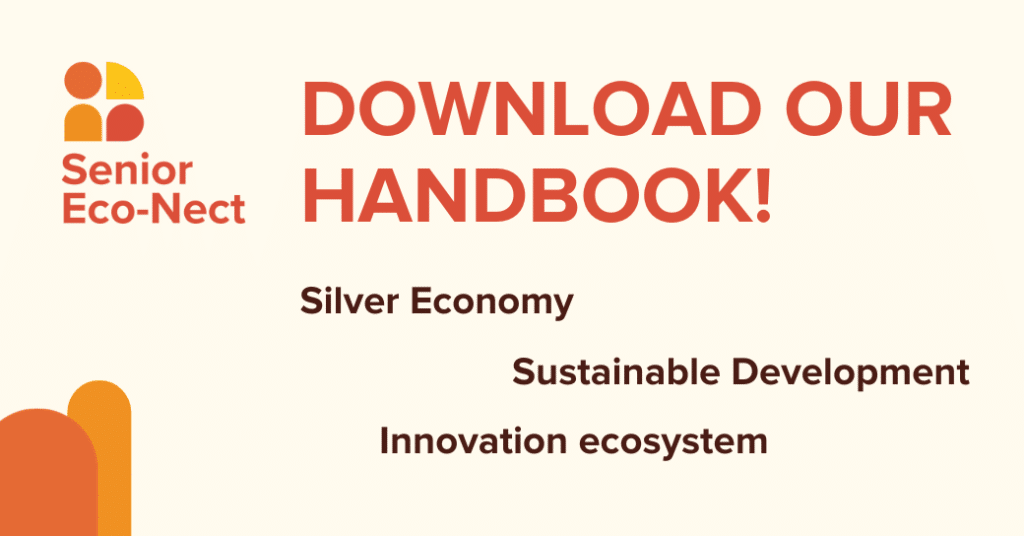The Handbook is presenting the potential and challenges of building a knowledge-based Silver Economy – as a response to population ageing, based on experience in the geographical and sectoral areas covered by the Project (this implies regionally: Hauts-de-France, Slovenia, Ireland, and Galicia – and sector-wise: housing & accessible tourism, and active ageing, innovation and sport).
Unfortunately, seniors are still predominantly perceived as the people to be cared about and creating growing public expenditures. However, the statistics for France, for example, gives a very different picture: only 6% of the French citizens above 50 years are actually in a dependant state. During the decade 2015-2025 the seniors are expected to contribute even 50% to the global Gross Value Added growth, about 30% to growth of productivity, and 13% to overall employment.
In reality, seniors are today the most intensely growing segment of society – with highest spending potential, and contributing importantly in paying taxes. How come that adjustment to population ageing is so slow and insufficient? It is primarily since politicians perceive seniors largely as a financial burden – instead of realizing their economic and even electoral potential. Unfortunately, they are not under political pressure from seniors, due to their generally too passive stand. In some countries pensioners’ parties have been created, but still with rather limited impact. Strangely enough many seniors are even sharing the old-fashioned perception of being a burden, which is politically also demobilizing them.
This is all seriously wrong, and politically incorrect – as it means introducing an age-based discrimination in the 21st century! As European countries are facing these issues, the project “Senior Eco-Nect” is looking at problems of population aging from a broader angle, and in the context of building Silver Economy as part of modern Knowledge Economy. However, this is requiring the creation of an efficient Innovation Ecosystem, which makes innovation a key supporting pillar of socio-economic and technological development, based on full mobilisation of all growth potential, including the senior part of population.
The objectives of the Handbook are:
- Introducing the actual dimensions and analyse the overall impact of ageing on modern societies and economies;
- Evaluating the repercussions of ageing on key domains such as: employment, social services, functioning of the market, innovative performance, financial stability of a country, etc.;
- Proposing to governments what could be done in terms of adjusting legislation and developing programs supporting the seniors through building Silver Economy.
- Presenting some good practice cases in addressing the population ageing challenges via Silver Economy and developing an appropriate innovation ecosystem.
The expected Handbook’s users are: economic operators, members of senior community, regional and national governments, the academics doing research and teaching on population aging, relevant civil society organisations, and – last but not least – the media.


